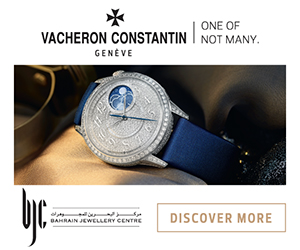The Holy Month can be challenging on your skin, but if you focus on hydration and follow a few other tips, you can end up with an even better complexion.

During the Holy Month, it is essential to pay extra attention to your skin. Fasting and lack of sleep, combined with hot weather, can cause more damage than you may realise. Dr Nedhal Khalifa, consultant dermatologist, aesthetics and laser surgery specialist, points out the best way to protect your complexion while embracing this spiritual period.
Hydration is the key to healthy skin. But if you consider that our bodies are 60- to 70-per-cent water, this precious liquid is actually necessary to keep most of the body functioning. Be very conscious of how much fluid you are taking during this period; drink it often in small quantities from Iftar to Suhoor.
The type of food you ingest is also important to consider. “Oily and sugary foods are a staple in our cuisine, and people tend to eat them a lot during this time; however, you should avoid them because they can cause breakouts and make the skin look dull,” says Dr Nedhal. She also mentions that you should reduce sugar intake, not only because it is bad for your health, but because sugar increases the skin’s ageing process. “Sugar can decrease collagen production, speeding up the process of ageing,” she adds. Choosing the right product to keep your complexion hydrated and clean is another point to pay attention to. “For oily skin, I recommend using water-based products and light moisturiser, but for mature skin, I suggest the use of a richer moisturiser,” advises Dr Nedhal. She adds: “Ramadan is falling in a hot month, so don’t forget to wear sunscreen after your moisturiser on a daily basis.” A gentle cleanser used twice a day, and staying away from harsh scrubs is also a good practice. If you don’t know what type of beauty items to pick, seek expert advice before treating your skin. Hydrating facial treatments are a great ally to fight the dry complexion caused by dehydration.
Skin therapies that include vitamin C are an excellent choice for their rejuvenation and radiance properties. “One question that I am frequently asked is if procedures with injectables are allowed during this period. I safely say yes, because everything that is injected is done in the upper layer of the skin and dermis, and this does not interfere whatsoever with fasting,” highlights Dr Nedhal. The last piece of advice is that exercising shouldn’t be neglected this month. It is common knowledge that moving is essential to general health but, in addition, it has specific benefits for the skin as it improves circulation. Also, sweating releases toxins acting as a detoxifying tool.
“Because of fasting, Ramadan is, in general, a good time to detoxify your body as a whole, and if you follow these tips, it will be easy to end up with clearer glowing skin,” concludes Dr Nedhal.
Quick Tips
– Stay away from sodas and caffeinate drinks. They suck out the minerals in the body, which reflects negatively on the skin.
– Pamper your eyes, otherwise dark circles might appear. Give a little massage, and cover with cucumbers or cool camomile tea bags to improve circulation and hydration in the area. During the night, apply a vitamin C serum.
– Load up on nuts. Ingest cashews, almonds and walnuts. They contain fibres and fatty acids that play a significant role in rejuvenating your skin.
– Moisturise! Every AM and PM.
– Use a mild skin cleanser free of heavy fragrances and artificial colours, and don’t over wash your face.
– Avoid oil-based makeup; opt for a water-based foundation.
– Invest in a good-quality lip-balm to be applied regularly.
– Leave the chemical peels and laser treatments to when Ramadan finishes.
– Eat lots of fruits and vegetables as they are rich in vitamins and minerals.
– Drink plenty of water in small quantities.
You can connect with Dr Nedhal Khalifa
@dermaonecentre


